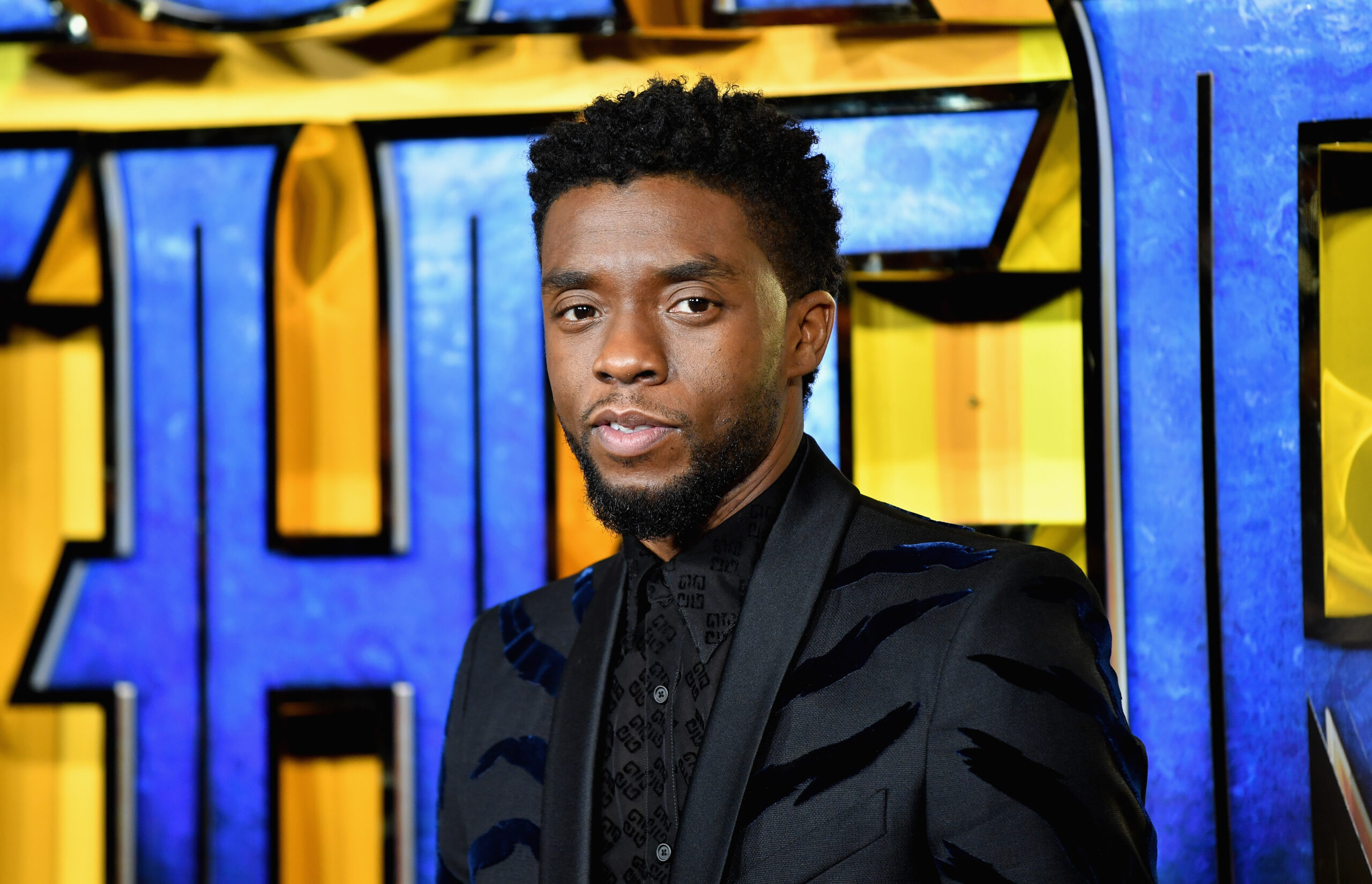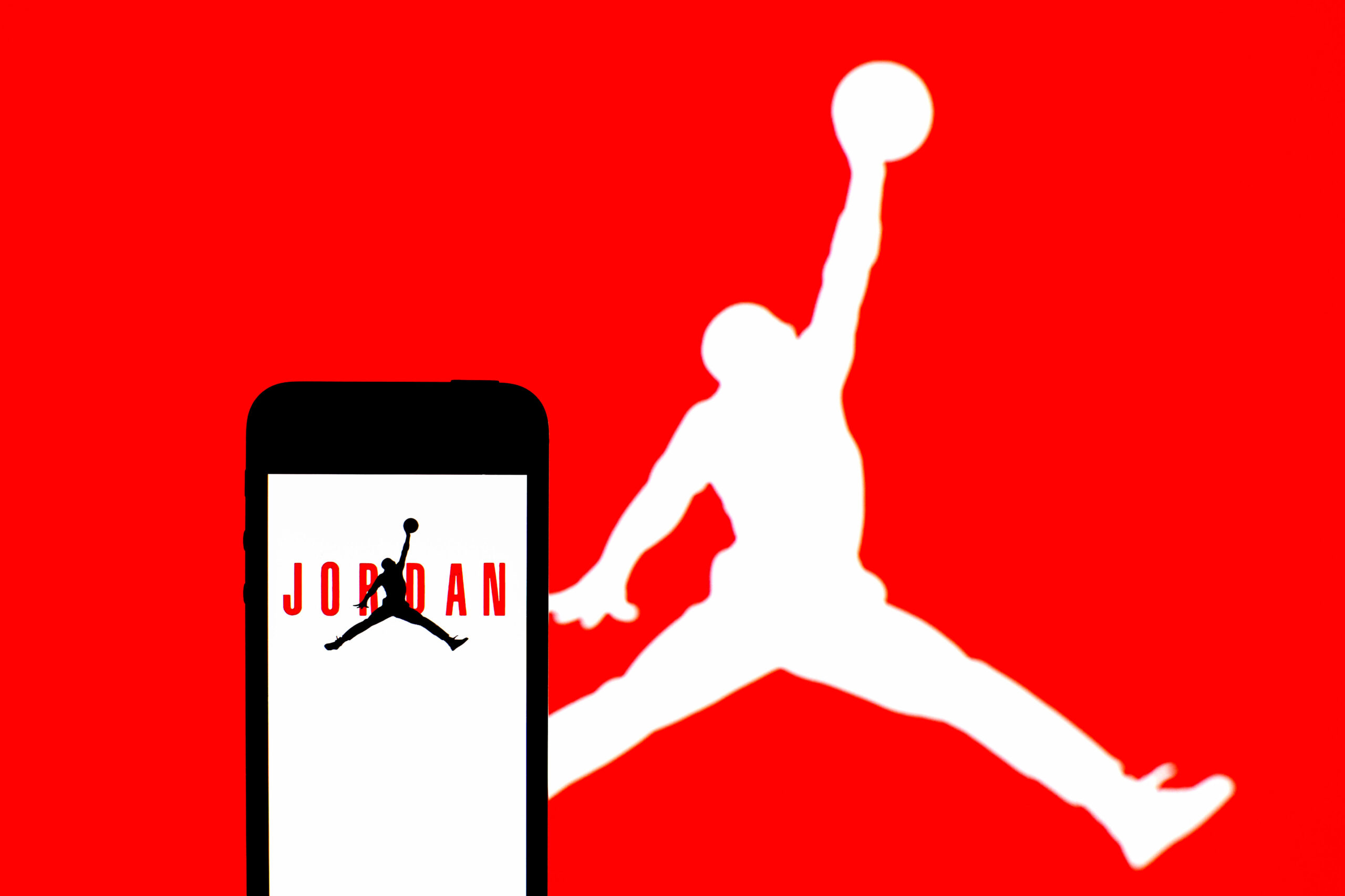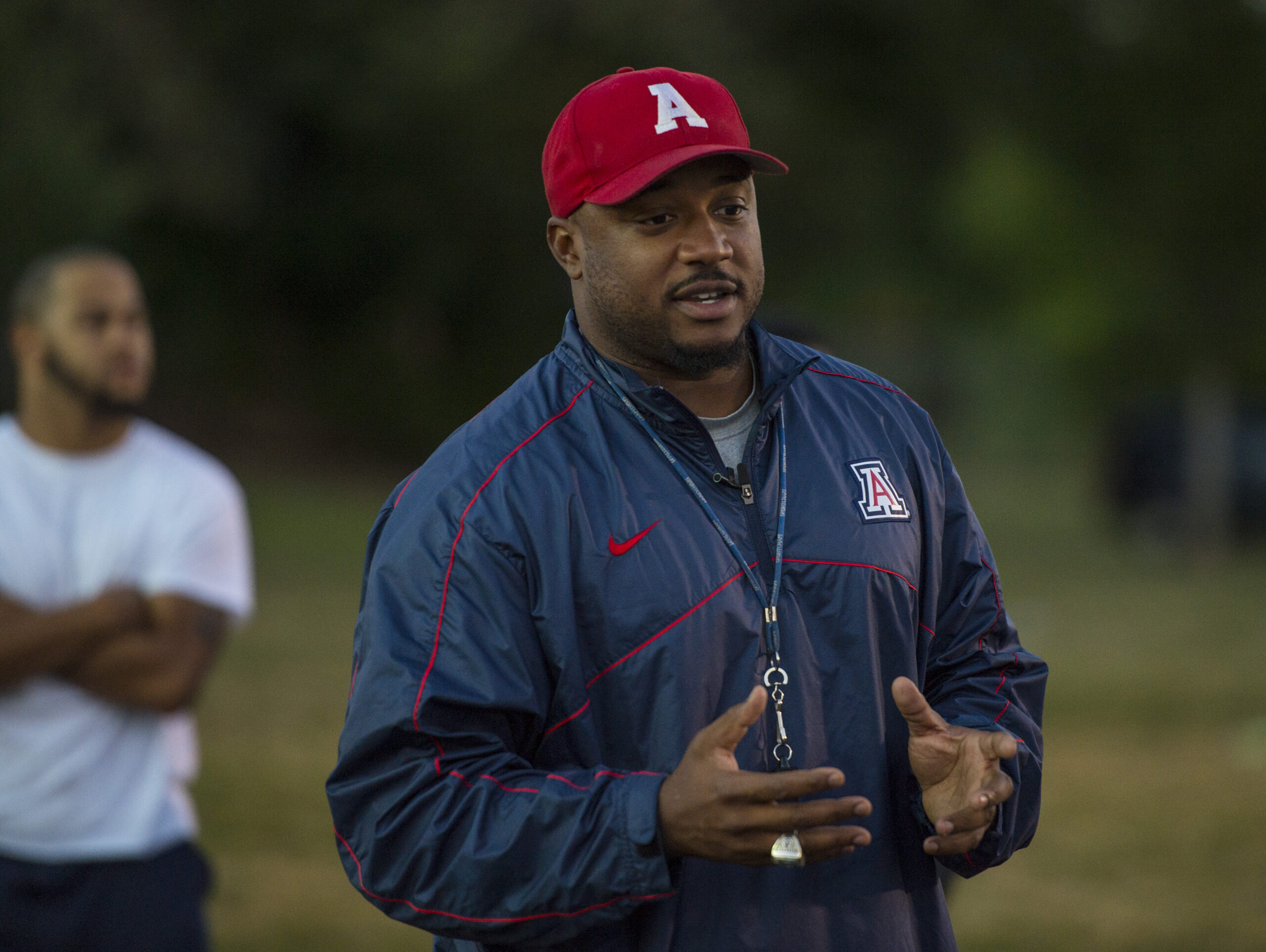Actor/writer Kevin Grevioux (pronounced “Gree-vee-us”) sounds like a werewolf. Just like the one he played in Underworld, when he speaks you’ll hear a howling, growl to his voice. It comes out in the tone of a heavy, baritone bass that booms as it travels from deep down in the back of the throat. The unintentional vibration of chills he creates when initially speaking, are smoothed out by enunciation, clearly hitting syllables crisply like the certified diction-trained college graduate of Howard University that he is. But the eloquence makes sense.
Having lived across the country, including the suburbs of Minneapolis, Boston, and New Jersey, his Harvard educated parents encouraged him to actively pursue the heights of education. Majoring in microbiology, Grevioux sought his Master’s degree in genetic engineering with dreams of becoming a doctor. That is, until he watched a clean-up crew. “I was gonna go for an internship at Howard’s hospital. And I was like, ‘Nah, this is not for me.’ Seeing some throw-up on the floor? It was like, ‘This is a nasty place to work,’” says the 6’2, linebacker sized giant. “I have a couple of pet peeves. One is that whenever I see somebody throwing up on screen, I’m like, ‘You didn’t have to do that. That looks nasty.’ And also, I can deal with real blood that looks real. But fake blood, since I know what it really is, makes me ill.”
Squeamish at the site of bodily fluid, his next career plan was to use his degree and become a scientist. “But what happened is that there were PHDs in my laboratory who weren’t even making $30,000 a year. And this was in ‘87 and it was the government. I was working at NIH [National Institute of Health]. But still, that is a paltry sum for the amount of time you spend in school and how difficult these majors actually are. It’s like, ‘Nah…’” he says. “So while I did grad school and worked at NIH, I congruently took TV and film courses at Howard. Of course I didn’t finish the Master’s program. But I left and said, ‘You know what? I’m going to try my hand at it.”
Headed to Hollywood, undeterred by knowing he’d become the black sheep of his family for following fluffy dreams based on a boyish love of comic book fantasies, Grevioux proved himself by flipping tiny extra roles into opportunities to pitch his ideas and writing. He was successful.
As the co-writer and producer of Underworld, his script about the century old fight between vampires and werewolves created a cult-like following that still gives power and energy to the Kate Beckinsale starring franchise today. And now, with his new film I, Frankenstein, starring Aaron Eckhart (The Dark Knight, Olympus Has Fallen) based on Grevioux’s Darkstorm Studios graphic novel, his writing, producing, and acting credits are once again seen on the big screen.
In this exclusive, personal interview with The Shadow League, Grevioux shares how his experiences with interracial dating inspired the making of Underworld. While sharing a few key tips on how to find success creating Hollywood sci-fi.
Raqiyah Mays: So I read that you based underworld on the premise of Romeo and Juliet and your interracial dating experience. And in some areas of the country, interracial dating is still taboo. But it’s becoming way more accepted now. Obama’s in office as the product of an interracial marriage. So what was the defining moment, when you knew this was the angle that you wanted to take in your writing of Underworld?
Kevin Grevioux: It wasn’t necessarily an epiphany. I think it was just natural. Most science fiction is based upon allegory anyway. So I thought vampires and werewolves was a good allegorical story. Why is it that these two monsters look at each other as the bane of their existence, when they’re both monsters? They’re created the same, one based on RNA, one based on DNA. And it’s like, ‘You guys are idiotic to be fighting.’ But here you have this star crossed, doomed, forbidden love amidst this century spanning race war, that’s interesting. The fact that it had never been done on film before was even more interesting. And I said, “Ah ha…”
RM: Ah ha… What would you say is one of your most memorable experiences with interracial dating?
KG: I was walking with this one girl I was dating. And you know, you only get stares from two people.
RM: I already know what you’re going to say. Which two people are these?
KG: Black women and white men. But the thing is though, the sisters would stare at me where if they had heat vision, I’d be toast. The white guys, would frown, (he mimics them cutting eyes.) but with guys I could do something about that like stop and stare back at them with the same anger. With guys, there’s that unspoken thing. That underlining unacceptance of it or that disdain. And you can feel it. No one says anything. And that unnerves me, because you start looking at the time period you live in. It ain’t a big deal. Who cares about interracial dating? In Europe it’s not like that.
RM: It’s not. But that’s America’s problem.
KG: And you wonder why. And… (Sighing) It’s kind of sick after a while. And I understand why. Like… (Sighing) I have a lot of black female friends, and they tell me why when they see a brother dating a white girl. Because there’s not many of them they think who can find a good black man. But there are so many different dynamics. ‘You can’t be that myopic.’
RM: And it’s all about perception as well. If you think you can’t find something, you won’t. You get what you think at the end of the day.
KG: Exactly. The only problem I’ve ever had with interracial dating, is that when you date someone of another race because you hate the opposite gender of your own. Like I met this one white girl, very pretty, very nice, and she hated white men.
RM: What?
KG: Yeah. And she said, ‘Well, ya know, black men just have a sexiness that white men don’t have. And I’m like, ‘Ya know you are sick. There’s something wrong with you.’
RM: Did you tell her that?
KG: Yeah. I said, ‘That’s not right. Come on now.’ That’s not cool. And I’ve heard a lot of people who are exclusive and they will only date someone of another race and say their own race doesn’t look as good. I’m like, ‘You have a problem.’
RM: Definitely. What do you think of black women opening up their dating pool and dating white guys?
KG: I think it's fine. It's not even an issue. The only other concern is when you have kids a black and white pair, the parents have to understand how to rear them. They may be color blind, but unfortunately, the world is not. Especially if you have a boy, cause he’s still going to be a black man, and the world is going to perceive him as one. You remember how your white friends used to say this or that if they were of that attitude. Now you have to know how to tell your son, ‘Be careful of the cops. Be careful of this neighborhood.’ And a lot of people will say, ‘Well I didn’t sign up for this.’ But, yes you did. This is what it takes. Are you willing?
RM: I was just talking to a friend of mine, an actor, brotha, big and muscular like you, and he says sistas tell him he’s going to end up with a white girl one day.
KG: I was told all that too. This one sista I was trying to talk to. I was trying to holla. And she was like, ‘You probably like white girls.’ She said this to me after we became friends. And I was like, ‘Now why did you say that?’ She said, ‘It’s the way you speak.’
RM: What? With intelligence? Eloquent?
KG: I guess that is a criteria that they look at. If they hear that, they’re like, ‘Yeah, he doesn’t like sistas. And then they say, ‘We’re real women.’ I’m like, ‘Get out of here.’ The ignorance and myopia in both races is legendary. It’s crazy.
RM: So let’s switch gears a bit. Why don’t we see more science fiction writers of color in Hollywood? I myself was surprised when I found out that the writer of Underworld, you, were black.
KG: A lot of people don’t know the guy who created Final Destination, Jeffrey Riddick, he’s black. And Tony Puryear, who wrote Eraser with Arnold Schwarzenegger is black as well.
RM: Really? Wow.
KG: Yeah, but you see as writers, we’re pretty much autonomous. No one runs to interview us. When I was a kid, you didn’t know who the writers of these comic books were. They were all behind the scenes guys. It’s usually the actors who get all the publicity. After that the directors, to a lesser extent producers, then the writers. But Hollywood runs off writers. And with being black and writing speculative fiction too, a lot of people are surprised. And no one has been more surprised more than black folks. And I understand why. They’re not trying to be offensive or anything, but it’s kind of funny. It’s different now, because they find there’s so much money to be made. I remember my wife was the only sista I dated who didn’t mind my collecting comic books. All the other ones? When I would bring them with me, you would get these long sighs.
RM: What they felt like you weren’t grown up? Or that it was a kiddie thing?
KG: Who knows what it was. I think that may have been it partially. But this is black folks’ myopia. And this is why we don’t tend to get into a diversity or a myriad of different disciplines, because it’s thought to be white, or juvenile or sophomoric. I remember when I was at Howard, I was in the hallway talking to a buddy of mine about the latest comic book, and this sista walks up and says, ‘What are you guys talking about? Comic books?’ She just blurts that out. And you know that scene in the remake of the Invasion of the Body Snatchers, where he points to her at the end of the movie and then screams? She did that to me.
RM: Laughing
KG: She said, ‘He reads comic books!’ And she was one of the most unattractive women I have ever seen in my life. And she just says that. I didn’t even respond. But, you know she ain’t laughing now.
RM: I bet she isn’t. And now you have I, Frankenstein. This film is from your graphic novels?
KG: The comic book actually came later. What it was is that I wrote the original screenplay. I sold it. And pitched the idea to Lakeshore back in 2007. But they didn’t understand. I went back, wrote the screenplay, but used the graphic novel, comic book in fact, to illustrate the world I was trying to create. This outcast monster world. And once I showed them the pages, then they understood. A lot of times, when you’re into genre, these perspective producers don’t necessarily understand the worlds in which you’re trying to create. So you have to have key frames or art to show them how cool it actually is. So my thing is to never go out with a naked screenplay. Cause at the end of the day, all it is, is dirty typing paper. But if it accompanies art work or a graphic novel of some sort, then they look at it more because it’s an intellectual property. And that’s smart to me because you can keep more control over the original idea and the universe you’ve created. And you can keep mining it for other ideas. One idea can give rise to another and another and another. So I would tell any young filmmaker who is interested in genre, create your own intellectual properties. Once you do that, you’re making yourself more of a creator. Not just a writer. But a creator. And you’re an idea machine. Hollywood is looking for you. They like that.
RM: Good stuff
KG: So when we had creative differences, [co-writer] Stuart [Beattie] was a mediator. And I took some of my characters, kept the basic spine of the story, which was the main villain trying to find the secret of the Frankenstein monster, and use that to create more monsters like him to ultimately take over the world.
RM: Interesting. So after I, Frankenstein, what’s next?
KG: Ooh, a lot. I just created this comic book company. Dark Storm comics. The site just lauched at www.darkstormcomics.com. I also have a CG animated film I’m working on right now. And other things I can’t talk about just yet. Trying to get into video games. I created a character called the Blue Marvel for Marvel Comics and they are now making him an Avenger. So yeah…
I, Frankenstein hits theaters, January 24.



